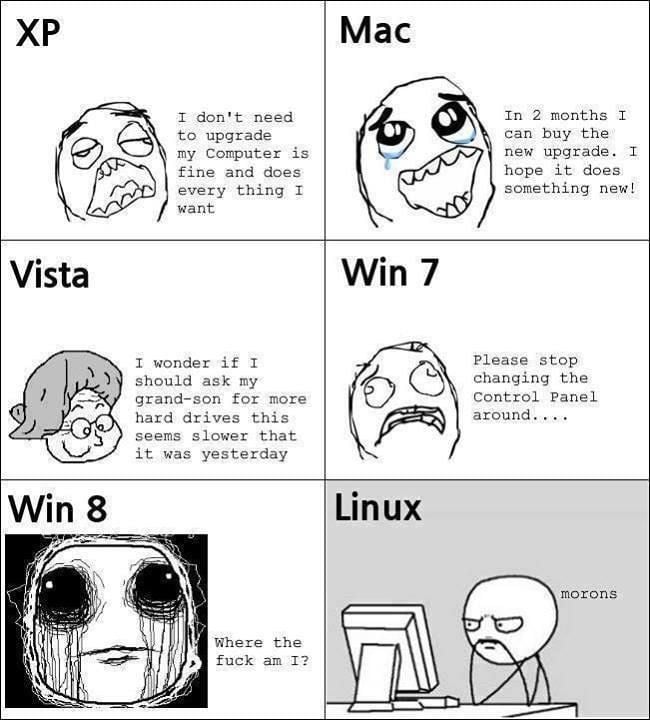The nearest bus stop is an hour away, and it’s for interstate transit. 🤷
Media Sensationalism
Owner and writer of CovertWiki.org. It’s basically a wannabe spy handbook in wiki format. Feel free to leave a bookmark until more content is released, or message me on Discord under the same username to become a contributor.
- 2 Posts
- 17 Comments
The place I’m planning to buy a home is so remote that I’m considering a backup car.
I learned how to repair my own vehicles after I was quoted $2,600 to install a $40 part. I could’ve also had an entire rebuilt engine shipped and swapped it in myself for about half that, but I ultimately decided to go with the $40 + basic tools.

 3·2 months ago
3·2 months agoIf I haven’t heard of it, then the average Windows user definitely hasn’t heard of it.

 8·2 months ago
8·2 months agoThe issue starts at the fact that it’s difficult to find a computer sold by a common major distributor with Linux already installed, nor does Linux have any marketing aside from word of mouth to compete with the aggressive Microsoft/Apple duopoly.
The threshold to entry begins at simply having the technical prowess to install an alternative operating system on one’s computer, which I don’t believe a good majority of people are even capable of. Before that, people also need an incentive to transition in the first place. They’ve probably been using their current OS for a good portion of their life and are more than comfortable with it without putting themselves through another learning curve.
The average person isn’t considering an alternative to what they’re already using, and if they are, it usually isn’t Linux. The biggest problem isn’t appeal or ease of use; it’s exposure and immediate accessibility.
That said, performance and simplicity would be an excellent selling point for Linux. It would be absolutely worth banking on the open-source nature of it to appeal to a growing demographic of people interested in privacy-oriented tech as well.
Bots don’t upvote. There’s so much voting activity here as a ratio to actual contributions that my first impression was that the votes might be faked.

 1·3 months ago
1·3 months agoCobwebs/Penlink seemed much more tailored to that, but these companies also have an incentive to exaggerate their products’ capabilities as much as they can get away with.

 1·3 months ago
1·3 months agoI haven’t felt the need to just yet. That feature would’ve come in handy on Reddit when Kanye and Formula 1 were taking over.

 36·3 months ago
36·3 months agoA straw man won’t be of much use to you, either. I didn’t have ‘Bingo’ on the list of things I expected to do today.
Mockery aside, I hope you’ll come to reflect on my critique and improve your argument-waging skills. Given how it was handled up front, I don’t expect anything constructive to result from deeper engagement.

 65·3 months ago
65·3 months agoI am, but again, what about it? Now that I’ve pointed out your original fallacy, your continued attempt to stick to TikTok’s impending ban as the focus of our conversation might just constitute a red herring. It was never pertinent to the point regarding TikTok being sued for privacy violations that you were originally trying to make, which is what I was addressing.

 84·3 months ago
84·3 months agoTiktok is facing a nationwide ban.
Nobody said anything about a ban. Just earlier you were implying that being fined for privacy violations constitutes discrimination against TikTok. You’re shifting the goalposts, evidently because you weren’t aware that other similar companies had already faced such fines as well.

 247·3 months ago
247·3 months agoWhat about them?
Google already got fined $170M for COPPA violations in 2019. Twitter was fined $150M in 2022 for disregard of privacy laws. Meta settled for $1.4B in a privacy suit just last week. TikTok isn’t being singled out here.
Intel owns 5/11 of the new US foundries.
Intel is supposed to be heading domestic chip production very soon. An Intel failure could have significant national security implications. The fed won’t allow them to fail.





It’s complicated, but no, I don’t.